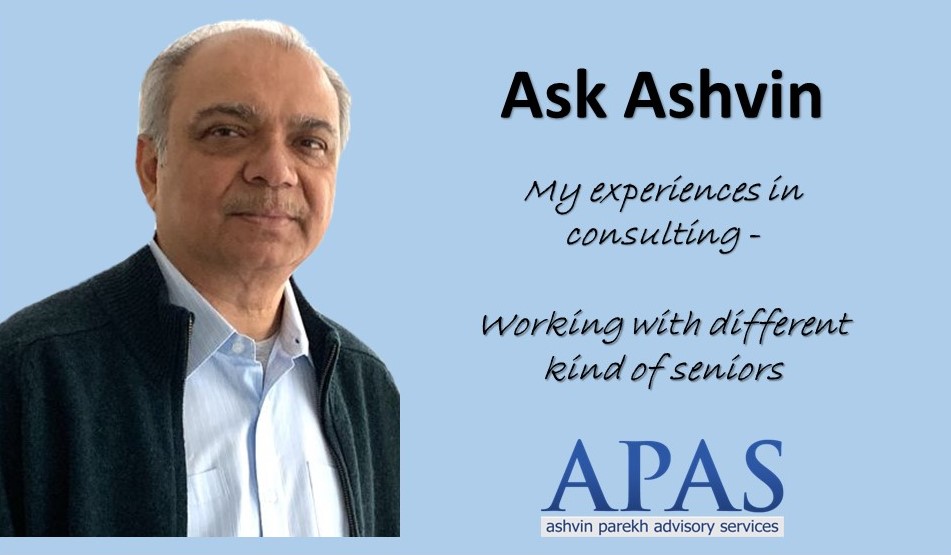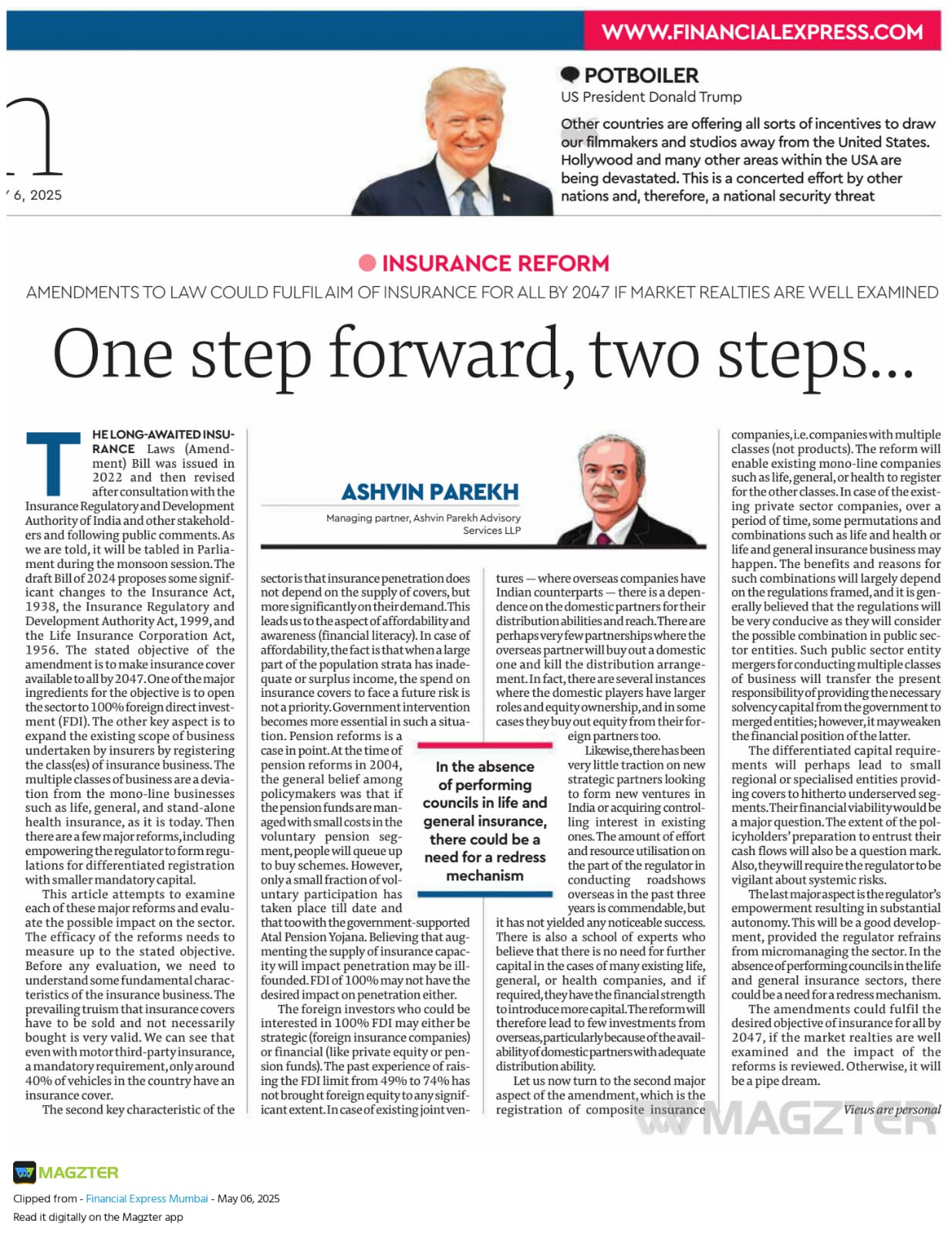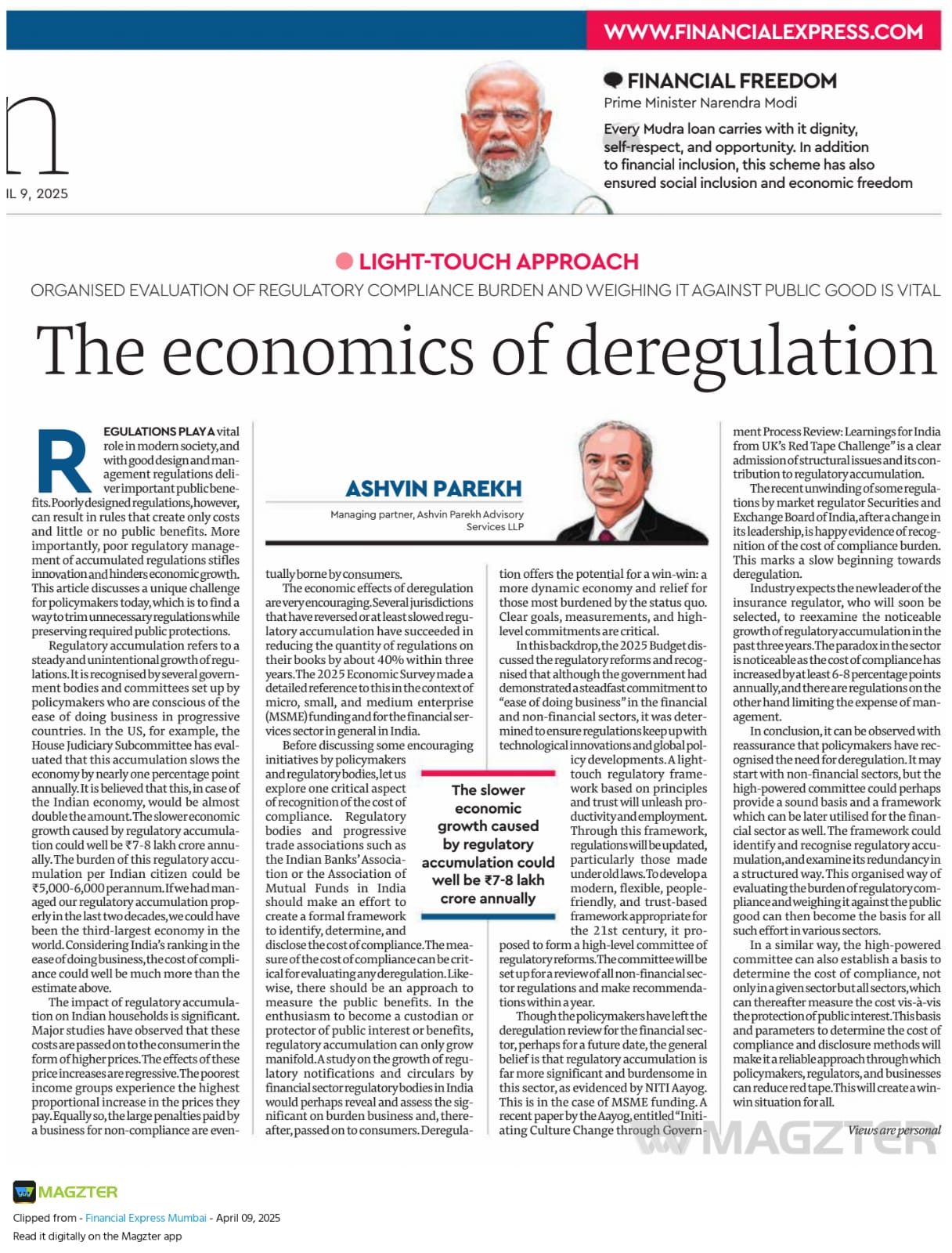by APAS Team
Share
by APAS Team
Share

My Experiences in Consulting – Working with Different kind of Seniors
During my consulting years, I have worked with many kinds of seniors. It does not take one long to understand and analyse seniors, however we see them with our lenses. If someone is good to you, he will be classified differently and the one who did not evaluate you well on your performance, you will consider as difficult. The good, bad or ugly seniors are therefore in the context of one’s own set of interest and expectations from the seniors. In this blog however I have attempted how you categorise your seniors and understand them, give them enough opportunity to judge you the way you expect them to see your brighter side and support you to grow in the firm. There are five simple approaches and steps to this exercise.
The very first step is to observe your seniors work with others and work with you. Does he guide his colleagues does he have adequate domain knowledge? Does he behave differently with different team members? Why does he behave so? Well, there are several ways, hundreds of parameters, both hard and soft skill measures that you experience on an assignment and outside of it. Focus first on his knowledge dimensions and then his persona trails, ignore all other aspects, to begin with.
The second step is to analyse their strengths, particularly in the knowledge dimension. Does he have very good knowledge of all aspects of the area of practice and the sector of his expertise, or otherwise. Personally, I have come across some seniors who I could immediately accept as role models, with their vast and updated knowledge on all relevant matters pertaining to work. Then again, I have worked with seniors who in my analysis were either dated or behind the curve.
When it comes to persona or profile, I realise that there is only one major dimension. His communication skills. if a senior is good in communication, he will carry his team and his client as well. having clarity of thought is half the battle one and the rest is the ability to share that clarity. I am reminded of a senior, who was my mentor in the initial years of my career. He could inspire all his colleagues and was admired by his clients as well. Working with him was a delight. After a couple of years, I evaluated his strengths and areas of weakness. He was mild and when he was confronted with a difficult client or for that matter another senior, he would cow down. I decided to make the team effort more effective by taking up the responsibility of communicating more assertively. That helped the team and changed my profile as well. I think I became more confident to face challenges and collectively we had some success. To my mind therefore assessing your seniors and supporting them helps. The third thing I notice is that the firms do provide opportunity, to work with more seniors. If the equation with one particular senior gets sour, there is no need to get disheartened. At the end of a given period, or over a span of few years, if you are good, you will get recognised. The worst that can happen is when you start nurturing the thought that your capabilities are not recognised or adequately utilised. That thought is a slow poison, if it harms you, if not kill you in the longer run.
The fourth step is wait for the right occasion to show your ability. They say that in consulting profession if you do not blow your own trumpet, who will? I know that one of my highly successful colleagues had the habit of showing his knowledge at the most appropriate time. In a team if you have contributed then make a record of it regularly. At the time of appraisal, most firms have the practice of self-appraisal which is then reviewed and discussed by the seniors. let’s examine the two situations, one where, in the self- assessment a consultant provides comprehensive detail about billable work done during the period of evaluation, the development programs, proposals worked on, successful ones of the those, the personal development participation and internal projects and the other where the person focuses on the recent programs, because he never maintained a good record of his work on time sheets. You will agree that the second candidate will stand a better chance of having an effective discussion. Fortunately, the consulting profession gives you an opportunity to work with more than one manager or partner in a year and if you show your work record at the appraisal, even a difficult senior may find it difficult to pull you down.
The fifth is a very radical approach, and I call it a measure of ‘double or quits’. If it becomes difficult to work with a senior, sit back and evolve a proper game plan. Examine all the weakness and shortcomings of the particular senior and then confront him politely at client meetings or preferably at the internal meetings when his peers or seniors are present to and put forth your case to seek clarity in what he or she expects from you. This is a radical approach and could result in shutting your door to negotiate or solve the matter. Try this approach only when you are armed with an appointment letter from another employer.
In conclusion I will reiterate that in consulting profession, you will have your ups and downs in regard working with different seniors. Remember that they also go through these cycles and keep patience. If you are worthy of it, you will get your recognition and reward.
STAY IN THE LOOP
Subscribe to our free newsletter.
The slower economic growth caused by regulatory accumulation could well [...]
Navigating the Future of Consulting: The Role of Digital Transformation [...]
HDFC Bank Completes Merger, Forging a Financial Powerhouse and Global [...]



